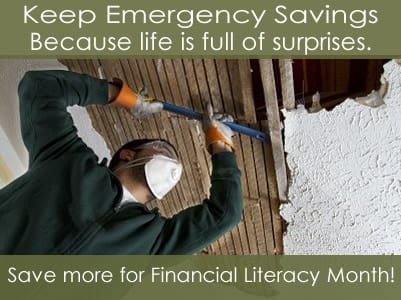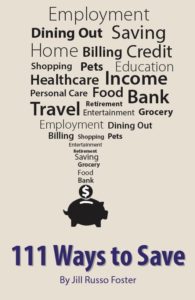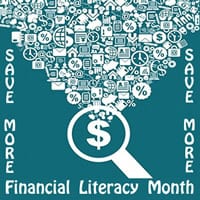
Emergency savings are for when your car breaks down. It’s for an unexpected medical expenses. It’s for covering your bills if you’re between jobs. It’s for unexpected home repairs. An emergency is something that must be taken care of right now or you won’t be able to get to work, have a place to live, or when you might have to choose between medical bills and utilities.
What it’s not: a savings account for things you think you need. No matter how much you think need to book a cruise, a nice vacation is a want. You will survive if you vacation at home with trips to the local beach. You will also survive without a smart phone, or cable TV, or a Kindle. You get the idea.
Once you have an emergency savings equal to one year of your expenses (yes, I said one year), then you can start saving for the fun things you want in life. Today, plan on how you are going to start saving for emergencies. Set up a regular savings amount from your pay that automatically goes to this account.

 tes a day for 1 full year. I ask you to take a hard look at how you do things and to make small changes with big impacts.
tes a day for 1 full year. I ask you to take a hard look at how you do things and to make small changes with big impacts.


